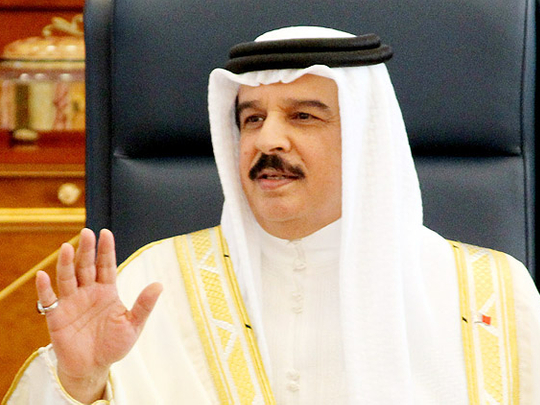
Bahrain’s decision to boycott any Gulf Cooperation Council (GCC) summit or meeting if Qatar attends is the right move to put out an end to a growing miasma in the region, a Bahraini analyst said.
“As pointed out by King Hamad Bin Eisa Al Khalifa, the GCC must be coherent and strong to be able to move forward and to protect its security and stability,” Mohammad Jaber said. “Bahrain has long suffered because of the dramatic events in recent years, and it can no longer accept less than full commitment to upholding its security and stability. The Riyadh agreements were a strong shield protecting all GCC members, and there is a need to ensure there is no fissure provoked by any member country that might defeat its purpose and put everybody else at risk.”
Regarding the future of the GCC, the analyst said he would expect, in the long run, the alliance would be turned into a confederation between Bahrain, Saudi Arabia and the UAE, and possibly Kuwait.
“Qatar is of course out, while Oman has clearly said that it was not in favour of a GCC union,” he said.
In the absence of both Bahrain and Qatar, the prospects of holding the Arab Gulf summit seem to be nil, other analysts said.
“Obviously, if two countries don’t attend [the scheduled summit], it would be difficult to hold it,” said Waheed Hamza Hashem, a Jeddah-based political scientist, in reference to the Bahraini King’s statement on Monday and reports that said Qatar would most probably not attend.
“It would be difficult to hold the summit given the absence of one-third of the members … the decisions need to be taken unanimously,” he told Gulf News.
Mohammad Izz Al Arab, a researcher specialising in Gulf affairs at Cairo-based Al Ahram Centre for Political and Strategic Studies, said the GCC summit’s fate is “either delay or cancellation”. This is due to the wide gap in the positions of Saudi Arabia, UAE and Bahrain on one side and Qatar on the other. The problem is Doha’s foreign policy.
Given the circumstances, the fate of the Gulf bloc itself is unclear — “unless things return to normal and an agreement is reached among the four countries,” said Hashem.
Other than that, any “Gulf bloc comprised of three or four members won’t be as efficient as this one,” he said.
Among the possible scenarios related to the fate of the current bloc is either status quo or the expulsion of Qatar, the formation of a new bloc between Saudi Arabia, UAE and Bahrain, and finally freezing Doha’s membership, analysts said.
Mohammad Al Hammadi, the Editor-in-Chief of the UAE Arabic daily Al Ittihad, said Qatar does not respect the charters, treaties, and ties that bind the GCC. “This is what the Bahraini King said. This is a very clear and unambiguous statement. He affirms that Qatar is no longer fit for membership of this council. It chose or was chosen to be a poisonous dagger that stabs the GCC states in the back.”
Al Hammadi feels the Gulf summit scheduled for next December may not be held. “If it is held, it may be a routine and a meaningless protocol issue. Bahrain’s boycott will not be limited to the summit, but will extend to any Gulf meeting attended by Qatar. Gulf countries, including Bahrain, are keen on the survival and cohesion and strength of the council. But Qatar believes this Council has ended, so it turned its back on it, and turned to Iran, which does not wish good for the GCC states, or other Arab countries.”
Al Hammadi affirmed that all the GCC countries are not ready to sacrifice the council but Qatar is ready to fall out of the calculations, and the council shall prevail without Qatar.











